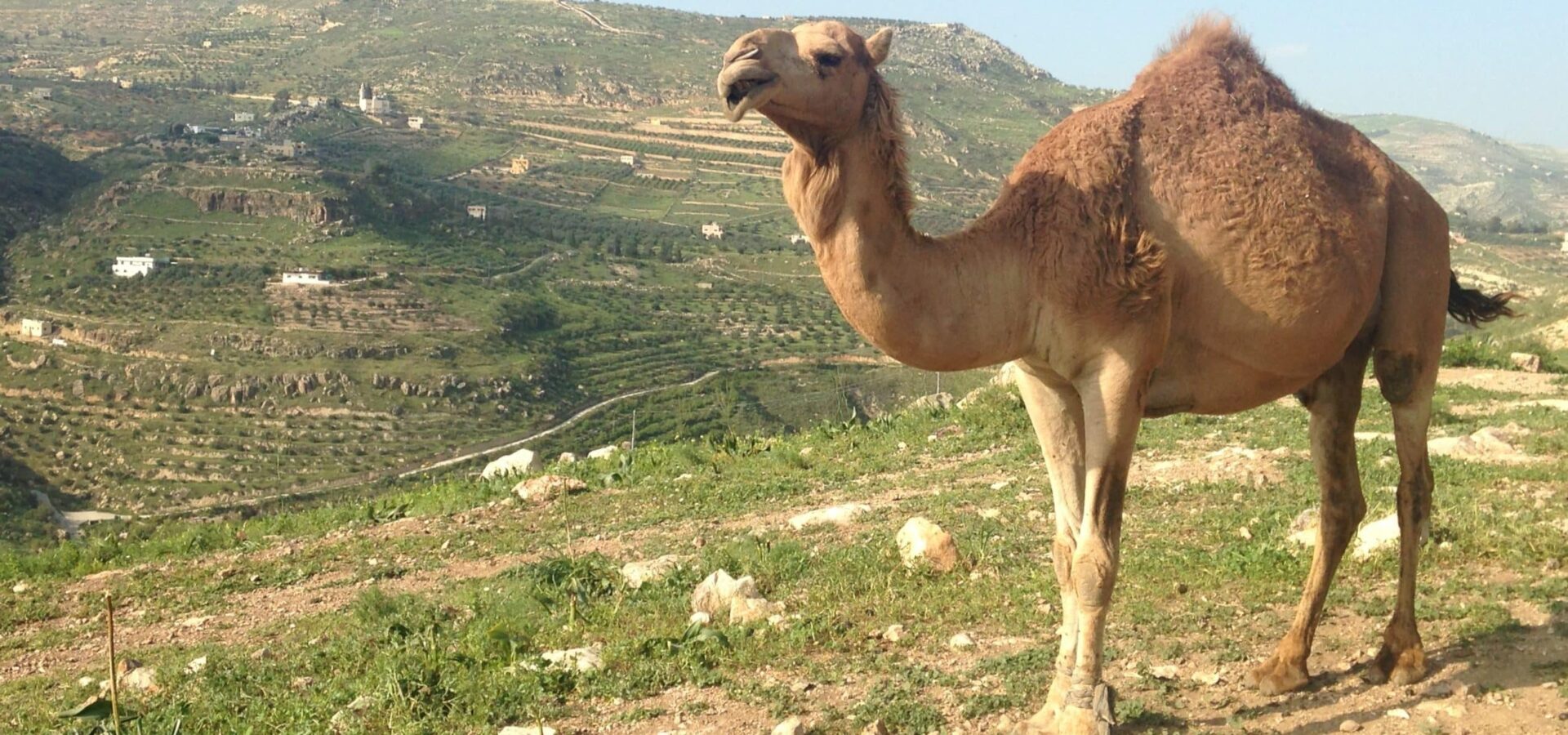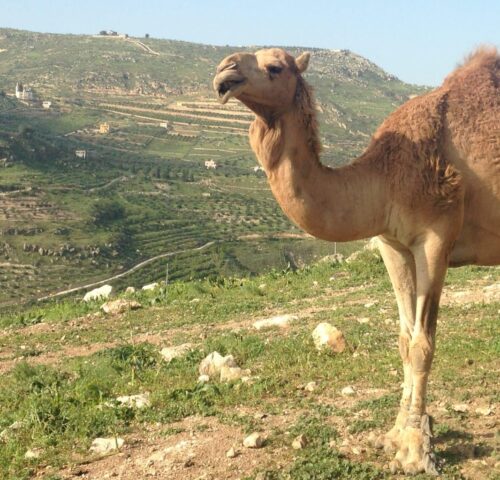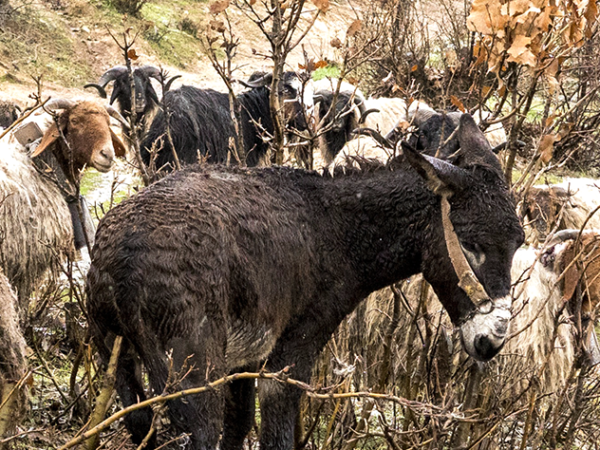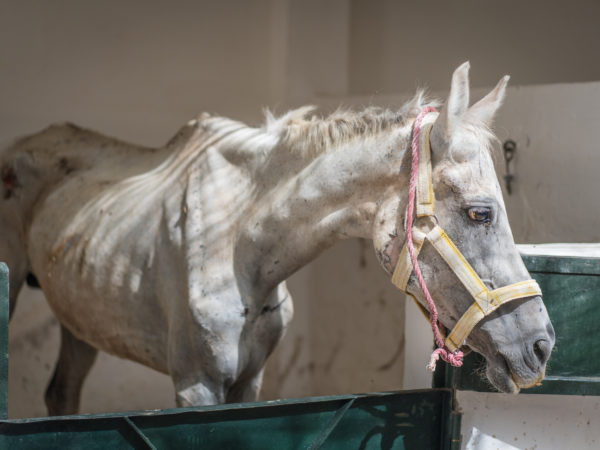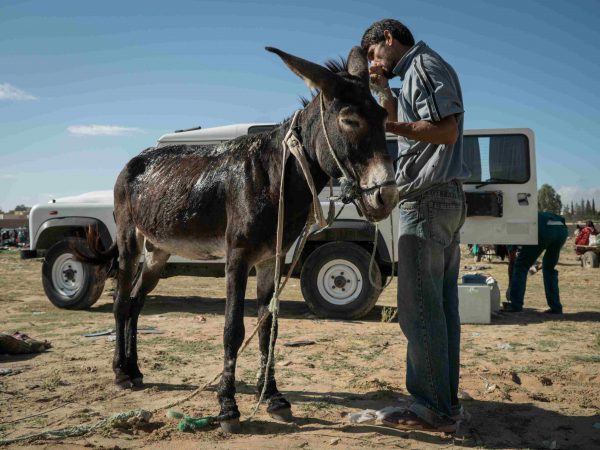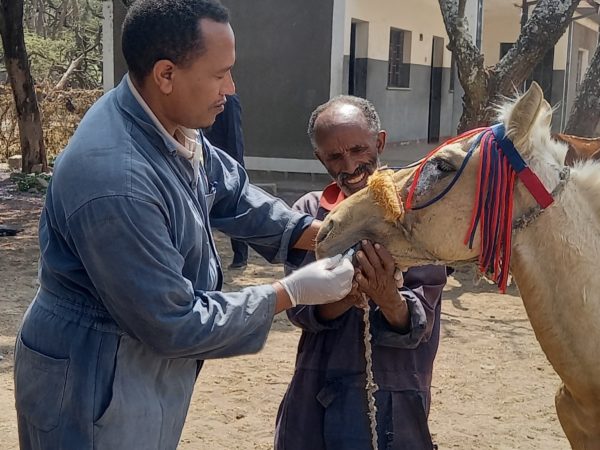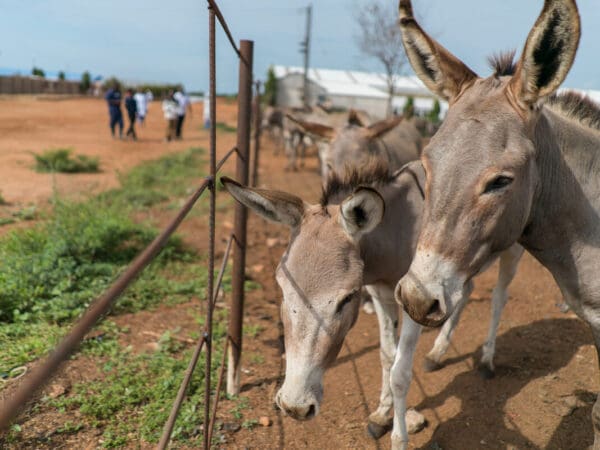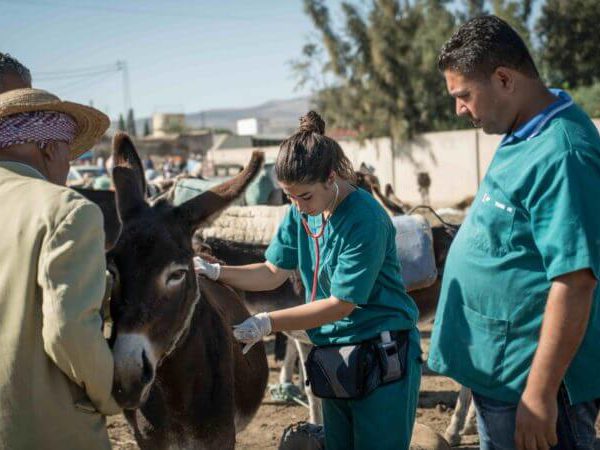Our work here began in 1989 and today we treat thousands of working animals in Jordan each year. Jordan remains a country focused on agriculture, and animals are vital. In rural areas, many people rely on working animals to transport essential goods and for agricultural work. Camels are used throughout the country for transportation and in the tourism sector.
Jordan at a glance
- Population: 11.2 million
- Area: 89,342 square km
- Location: Middle East
- Capital city: Amman
- Estimated number of working animals: 23,124
- Number of mobile clinics and clinical skills centres: Two
- Number of working animals treated in 2022: 13,992
- Number of animal owners trained in 2022: 2,428
- Number of veterinary professionals trained in 2022: 28
Our work in Jordan
Our mobile veterinary clinic helps working animals in remote regions of Jordan – especially southern Jordan, Jordan valley and northern Jordan. The most common ailments our vets encounter are respiratory cases and tack-related wounds. They also carry out preventative measures, such as tooth rasping and deworming.
As well as providing vital treatment to animals, our mobile clinic delivers community training in animal care. We also operate a clinical skills centre so that veterinary students and government vets can learn the practical skills they need to treat working equids.

